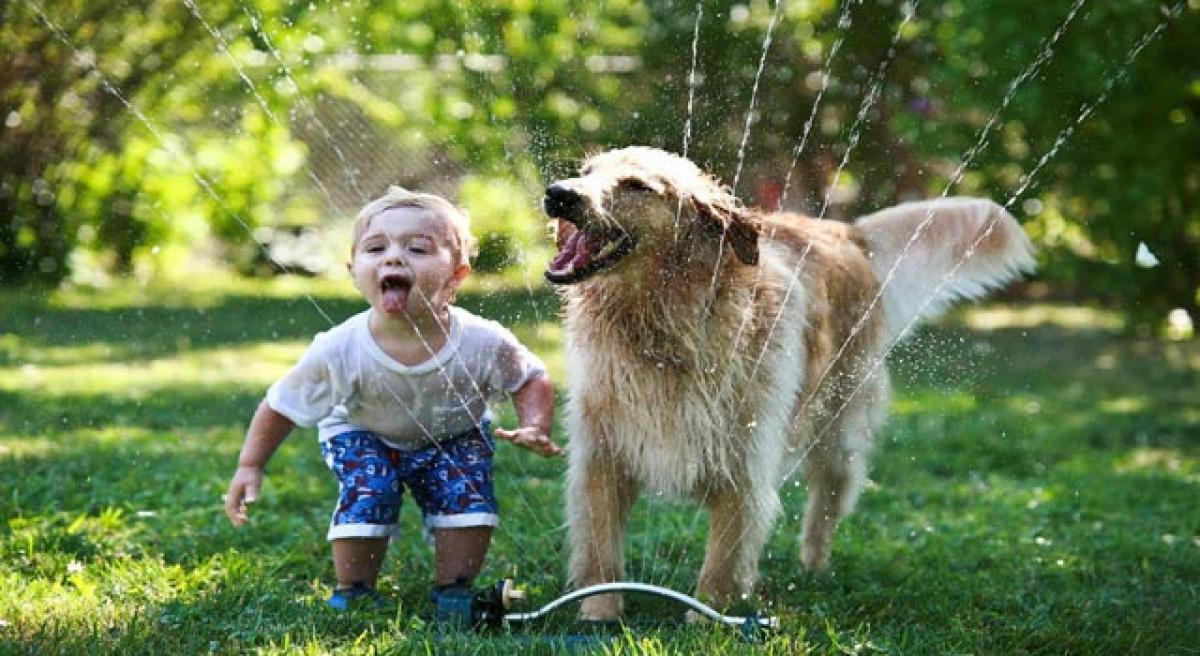Live
- Protection of ponds from encroachment demanded
- Prayagraj set to witness a massive influx of pilgrims
- CRPF doing commendable job in tackling Maoists: Shah
- UPSIDA’s secure work environment for women
- SGPC chief Giani cleans shoes at Golden Temple
- Haryana 2024: Election hustle, farmers’ struggle and sporting glory
- CM Atishi inaugurates flyover
- Kejriwal's New Delhi constituency: Atishi accuses BJP of distributing cash to voters
- LHMS, a boon for people
- Sushmita Sen is ready for 2025 with ‘new look’
Just In

Having a furry friend at home may lead to reduced risk of allergy and obesity in children, suggests a new research. Babies from families with pets -- usually dogs -- showed higher levels of two types of microbes associated with lower risks of allergic disease and obesity, according to the study published in the journal Microbiome.
Having a furry friend at home may lead to reduced risk of allergy and obesity in children, suggests a new research. Babies from families with pets -- usually dogs -- showed higher levels of two types of microbes associated with lower risks of allergic disease and obesity, according to the study published in the journal Microbiome.
"The abundance of these two bacteria were increased twofold when there was a pet in the house," said one of the study authors, Anita Kozyrskyj, from the University of Alberta in Canada. The latest findings from Kozyrskyj and her team's work on fecal samples collected from infants registered in the Canadian Healthy Infant Longitudinal Development study build on two decades of research that show children who grow up with dogs have lower rates of asthma.
In the current study, the researcher found that exposure to pets in the womb or up to three months after birth increases the abundance of two bacteria, Ruminococcus and Oscillospira, which have been linked with reduced childhood allergies and obesity, respectively. The pet exposure was shown to affect the gut microbiome indirectly -- from dog to mother to unborn baby -- during pregnancy as well as during the first three months of the baby's life.
In other words, even if the dog had been given away for adoption just before the woman gave birth, the healthy microbiome exchange could still take place. The study also showed that the immunity-boosting exchange occurred even in three birth scenarios known for reducing immunity - cesarean section versus vaginal delivery, antibiotics during birth and lack of breastfeeding.

© 2024 Hyderabad Media House Limited/The Hans India. All rights reserved. Powered by hocalwire.com







